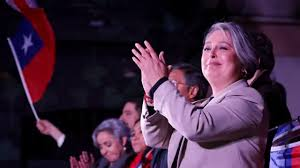Por Rodolfo Varela
El Estado chileno ha abierto una nueva consulta ciudadana virtual sobre derechos humanos, disponible hasta el 31 de julio de 2025.

El objetivo declarado es recoger la opinión de la ciudadanía para diseñar el Tercer Plan Nacional de Derechos Humanos y el Tercer Plan de Acción Nacional de Derechos Humanos y Empresas. Pero desde nuestra experiencia, esto no es más que otra vuelta al mismo ciclo de promesas incumplidas, diagnósticos eternos y programas que no cambian vidas.
El anuncio oficial dice que esta consulta permitirá opinar sobre los objetivos y acciones propuestas por las instituciones públicas en materia de derechos humanos. Una linda frase que en el papel suena bien, pero en la práctica parece una nueva maniobra de burrocracia estatal: más papeles, más formularios, más tiempo perdido… y cero reparación.
Nosotros, los que sufrimos persecución, prisión, tortura y exilio por parte de la dictadura militar, no necesitamos más encuestas ni talleres participativos. Lo que necesitamos es justicia y reparación real. Queremos pensiones dignas, reconocimiento efectivo y un trato humano, no solo en los discursos sino también en la ley y en los hechos.
Han pasado más de 50 años desde el golpe de Estado. Durante décadas hemos visto cómo se diseñan planes, se hacen diagnósticos, se firman convenios y se celebran mesas de trabajo. Mientras tanto, muchos compañeros y compañeras han muerto esperando. El tiempo nos sigue pasando por encima, y la deuda sigue intacta.
Y lo que es aún más indignante: hay exonerados que sirvieron a la dictadura y hoy reciben pensiones millonarias, mientras las verdaderas víctimas —quienes lucharon por la democracia y los derechos humanos— sobreviven con pagos miserables. Los poderes políticos y judiciales guardan un silencio cómplice: sordos, mudos y ciegos frente a esta injusticia.
Por eso, esta nueva consulta parece llegar tarde. Muy tarde. No es que estemos en contra de la participación ciudadana. Pero ya es hora de que esa participación se traduzca en acciones concretas, especialmente para quienes entregamos parte de nuestra vida por defender la democracia y hoy vivimos en condiciones indignas.
El Estado chileno tiene una deuda histórica con sus víctimas. No es posible seguir aplazando el cumplimiento de esa responsabilidad. Escuchar a la ciudadanía está bien, pero más importante aún es cumplir con ella.
Porque un país más justo, solidario y auténticamente nuestro, no se construye con encuestas, sino con justicia.
🗳️ Tu opinión es clave: si deseas participar en esta consulta ciudadana, puedes hacerlo hasta el 31 de julio de 2025 en la plataforma oficial:
👉 www.consultaciudadanaddhh.gob.cl (enlace de ejemplo)
















